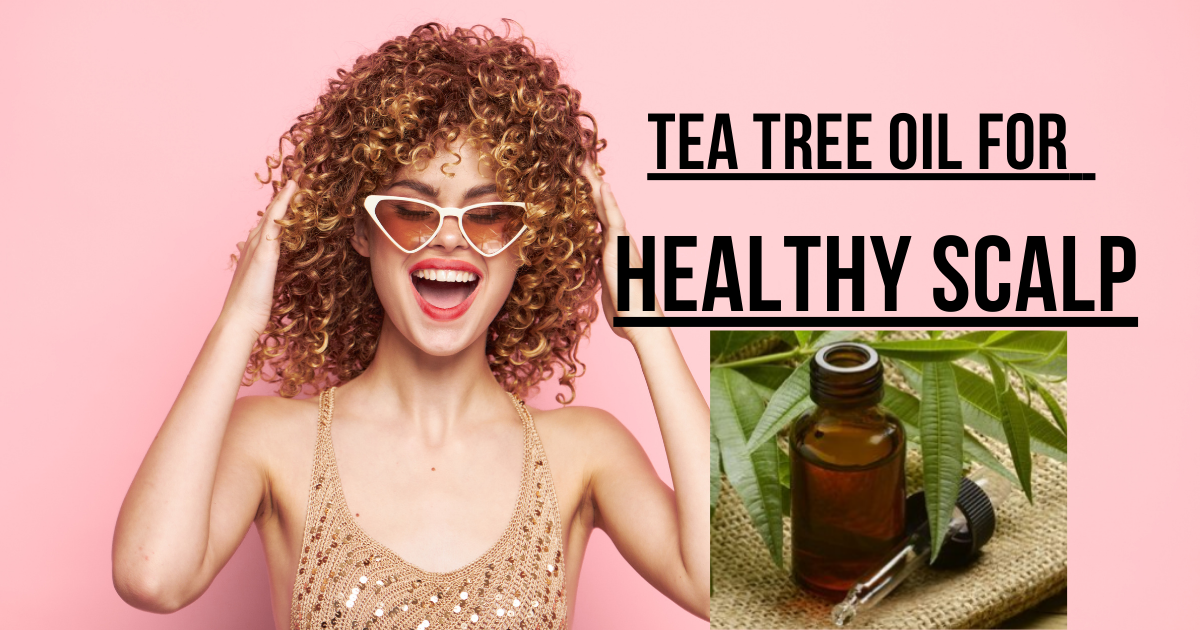Discover the benefits of tea tree oil for improving scalp health and reducing dandruff. Learn how to use it for optimal results.
Content List:
1. Introduction to scalp health
2. What is tea tree oil?
3. Benefits of tea tree oil for scalp health
4. How to use tea tree oil for scalp health
5. Precautions to take while using tea tree oil
6. Other natural remedies for scalp health
7. FAQs
8. Conclusion
1. Introduction:
Scalp health is crucial for healthy and lustrous hair. A healthy scalp promotes hair growth, reduces hair fall, and prevents dandruff and other scalp issues. Tea tree oil is a popular natural remedy for improving scalp health. In this article, we will explore the benefits of tea tree oil for scalp health and how to use it for optimal results.
2. What is Tea Tree Oil?
Tea tree oil is derived from the leaves of the Melaleuca alternifolia tree native to Australia. It has antibacterial, antifungal, and anti-inflammatory properties, making it a popular natural remedy for various skin and hair issues.
3. Benefits of Tea Tree Oil for Scalp Health:
Reduces dandruff:
Tea tree oil has antifungal properties that help reduce the growth of yeast and fungi responsible for dandruff. It also soothes an itchy scalp.
Promotes hair growth:
Tea tree oil unclogs hair follicles and nourishes the hair roots, promoting healthy hair growth.
Prevents hair fall:
Tea tree oil strengthens the hair roots and reduces hair fall caused by scalp issues like dandruff and itching.
Improves scalp health:
Tea tree oil's antibacterial properties help prevent scalp infections and improve overall scalp health.
Reduces scalp acne:
Tea tree oil's anti-inflammatory properties reduce inflammation and redness caused by scalp acne.
4. How to Use Tea Tree Oil for Scalp Health:
- Mix a few drops of tea tree oil with a carrier oil like coconut or olive oil and massage it into your scalp. Leave it on for 30 minutes before washing it off with shampoo.
- Mix tea tree oil with your regular shampoo and use it while washing your hair.
- Make a tea tree oil hair mask by mixing it with honey and yogurt. Apply it to your scalp and hair and leave it on for 30 minutes before washing it off.
5. Precautions to Take While Using Tea Tree Oil:
- Always dilute tea tree oil with carrier oil before using it on your scalp.
- Do a patch test before using tea tree oil to check for allergies.
- Do not use tea tree oil on broken skin or wounds.
- Avoid using tea tree oil on children and pregnant women without consulting a doctor.
6. Other Natural Remedies for Scalp Health:
Aloe vera:
Aloe vera has antibacterial and anti-inflammatory properties that soothe an itchy scalp and reduce dandruff.
Apple cider vinegar:
Apple cider vinegar helps balance the pH of the scalp and reduces dandruff and itching.
Neem oil:
Neem oil has antibacterial and antifungal properties that reduce scalp infections and dandruff.
Articles in trends -
Good Foods for a dandruff-free Scalp
7. FAQs
A. Is tea tree oil safe for all hair types?
Tea tree oil is generally safe for all hair types, but it is always recommended to do a patch test before using it on your scalp. People with sensitive skin may experience irritation, so it is important to dilute the tea tree oil with a carrier oil like coconut or jojoba oil before using it.
B. How often should I use tea tree oil for scalp health?
Tea tree oil should be used once or twice a week for optimal results. Overuse of tea tree oil can cause dryness and irritation, so it is important to use it in moderation.
C. Can tea tree oil cause hair loss?
Tea tree oil is not known to cause hair loss. In fact, it can promote hair growth by unclogging hair follicles and reducing inflammation on the scalp.
D. Can I apply tea tree oil directly to my scalp?
It is not recommended to apply tea tree oil directly to the scalp without diluting it first. Tea tree oil is very potent and can cause irritation and dryness if applied directly.
E. Can tea tree oil be used for oily scalp?
Yes, tea tree oil can be used for oily scalp as it has antimicrobial properties that can help control the growth of bacteria and fungus that can cause dandruff and other scalp issues.
F. Can tea tree oil cause an allergic reaction?
Yes, tea tree oil can cause an allergic reaction in some people. It is important to do a patch test before using it on the scalp and discontinue use if any allergic reactions occur.
G. Can tea tree oil be used for colored hair?
Tea tree oil is generally safe for colored hair, but it is important to use it in moderation as it can strip the hair of its natural oils if overused. It is recommended to dilute the tea tree oil with carrier oil before using it on colored hair.
8. Conclusion
In conclusion, tea tree oil is a natural and effective solution for promoting a healthy scalp and reducing dandruff. Its antimicrobial and anti-inflammatory properties can help control the growth of bacteria and fungi that can cause scalp issues. Using tea tree oil once or twice a week in a carrier oil like coconut or jojoba oil can help unclog hair follicles, reduce inflammation, and promote hair growth. It is important to do a patch test before using tea tree oil and to dilute it properly before applying it to the scalp. By incorporating tea tree oil into your hair care routine, you can promote a healthy and dandruff-free scalp.
Articles in trends -
Good Foods for a dandruff-free Scalp
DIY
Apple Cider Vinegar Rinse for Curly Hair





No comments:
Post a Comment